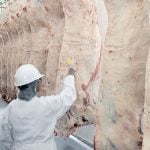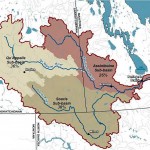A coalition of Saskatchewan farm groups says western Canadian farmers lost an estimated $3.1 billion last crop year and could lose $2 billion this crop year because of a broken transportation logistics. The coalition formed by Saskatchewan Pulse Growers, the barley and wheat development commissions and Agricultural Producers Association of Saskatchewan (APAS) submitted nine recommendation






